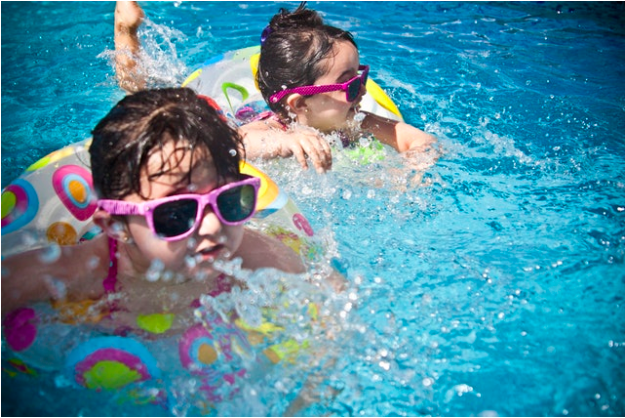
The two main types of inground swimming pools offered at Paradise Pools are concrete (gunite) and vinyl liner. Both structures have pros and cons. Everyone has different priorities, so there is no “best” option. Instead, we explain the advantages and disadvantages and help our customers choose the right option for their budget, expectations and priorities.
Below is the information we share with our customers when they call us for a quote. Together, we can do an honest analysis of concrete and vinyl liner pools to help you make an informed decision.
Customization
- Concrete. Concrete is the better option if you want the most unique swimming pool on the block. It can be designed virtually any way you’d like, including very large or very deep. You can also do fun and creative layouts such as tanning ledges.
- Vinyl liner. There are options to customize the size, shape and depth of a vinyl liner pool, just not as many as with a concrete one. Generally, people choose rectangular shapes.
Installation
- Concrete. You’ll need to schedule a gunite installation way in advance, as it takes roughly 3-6 months to complete.
- Vinyl liner. Most vinyl liner pools take 4-8 weeks to complete. Many of our customers will call us in late winter/early spring to start the process and have a brand new pool by summer!
Investment
- Concrete. On average, concrete pools cost between $50,000-$100,000 for installation. There are also maintenance costs to consider for replastering, acid washes, electricity usage and more. Gunite can be beautiful, but it’s an investment.
- Vinyl liner. Vinyl liner swimming pools are the more budget-friendly option. Installation usually costs around $20,000-$50,000. Over time, vinyl liner pools also tend to use less electricity and chemicals.
Comfort
- Concrete. Everyone knows that concrete is rough on the skin. It can easily scarpe toes and feet, which is why you’ll likely want to get some type of finish. Plaster and a polished aggregate finish are most popular.
- Vinyl liner. There are no scrapes to worry about with the smooth texture of vinyl. That said, it’s less durable and can rip. Be sure to fix any rips or tears right away to keep the liner in good condition.
Durability
- Concrete. Concrete is amazingly durable, and you don’t have to worry about dog claws, kids’ toys, pool equipment, etc. poking holes into the liner.
- Vinyl liner. Vinyl liners are as durable as they can be, but they can rip for a number of reasons. Even if you take excellent care of the liner, it will still need to be replaced in under 10 years.
Maintenance
- Concrete. Despite its durability, concrete is porous and a magnet for algae growth. It’s recommended to brush the pool surface with a wire brush each week to prevent this buildup. Pool water should be tested weekly, too.
- Vinyl liner. The issue with a vinyl liner is wrinkles, but they are simply a cosmetic issue. Dents from rocks or pebbles can also be unsightly or uncomfortable, and water chemistry should be tested weekly.
Are you considering installing a swimming pool or renovating your existing one? Call Paradise Pools for a consultation and let’s discuss your pool needs!

 CALL US TODAY!
CALL US TODAY!



